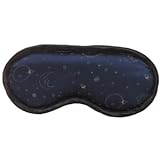Video here: http://www.naturalnews.tv/v.asp?v=0C3EAD2326B55EFA7A2D503499190B5B
Video Information
For how long have we been rising with the sun and retiring when it went down? A long while, so how important do you make it to retire at 2200hrs (10pm) and sleep for between 7-9hrs uninterrupted, in a darkened room? Depending on the time of year, where you were born and or are presently living your healthy circadian rhythm is vital for your wellbeing.
Here are a few ideas to help improve your sleep cycle if required:
• Sun up - get up
• Sun down – sleep. During the winter months dim your lights two hours before bed.
• Avoid bright lights including TV & Computers 30 min's before bedtime
• Ensure your bedroom is completely dark, no light from anywhere, including your clock!
• Be at least 3 feet away from any electrical appliances
• Avoid caffeine after 2pm (1/2 life of 6 hours)
• Avoid alcohol (Cortisol release, which is a stress hormone)
• Avoid eating high GI foods like carbohydrates before sleeping
• Performing deep breathing exercises to facilitate relaxation
• Reserving your bed for sleeping, rather than using it as an alternative site for working, watching T.V, or studying
• Turn your router system off at night (EMF)
• Leave your window partially open at night. People typically sleep best when there is fresh air in the room and it's about 60-65 degrees.
• Spending 15 to 30 minutes winding down by making excellent natural music selections. Keep the volume low enough that it's not disruptive.
• Meditate, read or journal 30 min's before your bedtime.
• Shower or bathe in un-chlorinated water before bed. Do not use mass-market, non-organic commercial scents, oils or hygiene products on your body at night. Most of these products are loaded with toxins that elevate stress hormones.
Video Information
For how long have we been rising with the sun and retiring when it went down? A long while, so how important do you make it to retire at 2200hrs (10pm) and sleep for between 7-9hrs uninterrupted, in a darkened room? Depending on the time of year, where you were born and or are presently living your healthy circadian rhythm is vital for your wellbeing.
Here are a few ideas to help improve your sleep cycle if required:
• Sun up - get up
• Sun down – sleep. During the winter months dim your lights two hours before bed.
• Avoid bright lights including TV & Computers 30 min's before bedtime
• Ensure your bedroom is completely dark, no light from anywhere, including your clock!
• Be at least 3 feet away from any electrical appliances
• Avoid caffeine after 2pm (1/2 life of 6 hours)
• Avoid alcohol (Cortisol release, which is a stress hormone)
• Avoid eating high GI foods like carbohydrates before sleeping
• Performing deep breathing exercises to facilitate relaxation
• Reserving your bed for sleeping, rather than using it as an alternative site for working, watching T.V, or studying
• Turn your router system off at night (EMF)
• Leave your window partially open at night. People typically sleep best when there is fresh air in the room and it's about 60-65 degrees.
• Spending 15 to 30 minutes winding down by making excellent natural music selections. Keep the volume low enough that it's not disruptive.
• Meditate, read or journal 30 min's before your bedtime.
• Shower or bathe in un-chlorinated water before bed. Do not use mass-market, non-organic commercial scents, oils or hygiene products on your body at night. Most of these products are loaded with toxins that elevate stress hormones.


